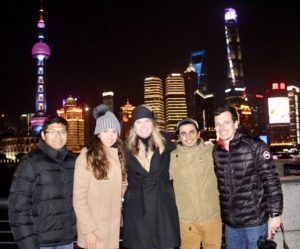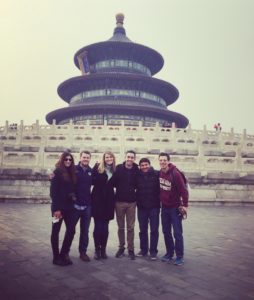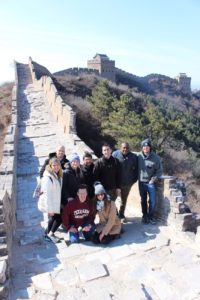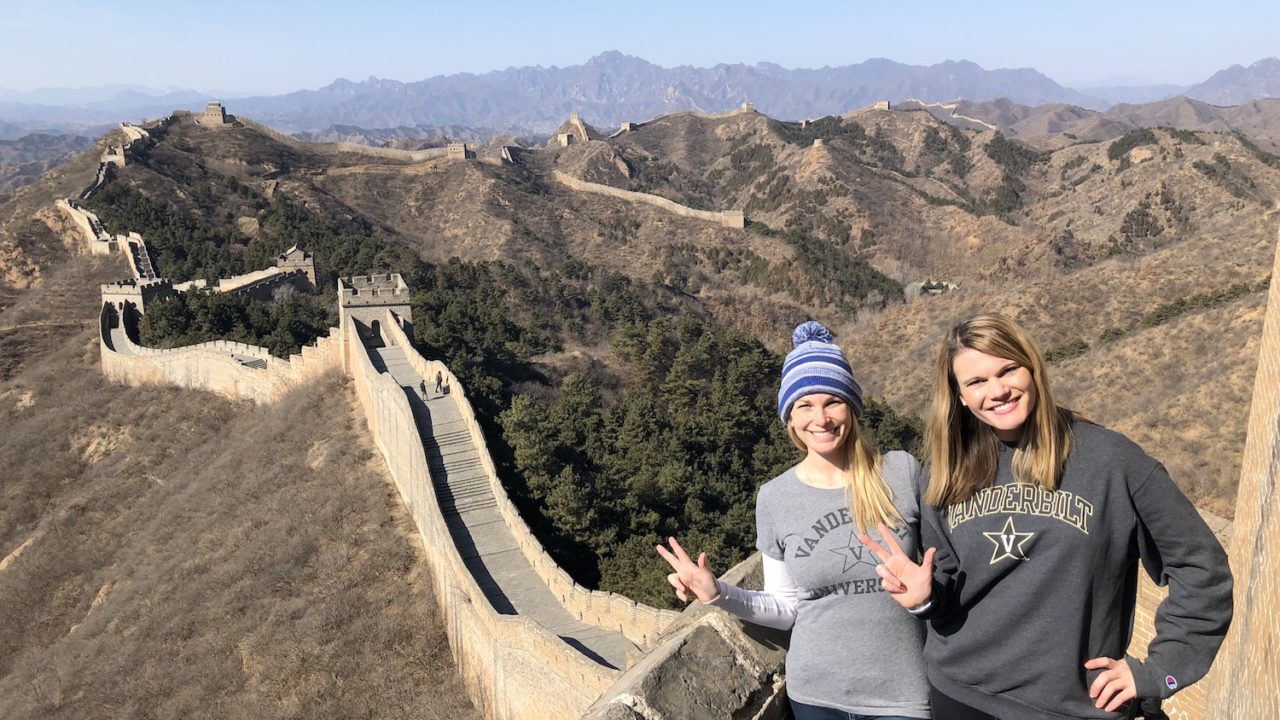By Kara Sherrer
Every other year, a group of Vanderbilt Business MBAs travel from the largest economy in the world (the U.S.) to the second largest, and one of the fastest growing: China. Over spring break, they meet with partners and interview sources for consulting projects, which they wrap up after returning stateside.
The trip is led by Ray Friedman, Brownlee O. Currey Professor of Management, an expert on negotiation, conflict resolution, and Chinese management. In addition to teaching at Vanderbilt Business, he is the President-elect of The International Association for Chinese Management Research, as well as the Senior Editor of Management Organization and Review.

Students spent most of the trip in Shanghai
“The goal of the (trip),” Friedman explains, “was to get students to engage with the Chinese culture and business environment.”
We sat down with trip participants to learn about the challenges of doing business in China and why international business leaders need to have experience with this influential economy.
Preparing for the Trip
While the course “Doing Business in China” (held during Mod II) is not required for trip participants, students did attend a few of the classes for a brief overview of the business environment in China. Some also attended optional sessions on basic language skills and etiquette tips. “It was a good amount of prep work, even if you didn’t take the class,” noted Julia Brown (MBA’19).
Before the trip, students actively searched for clients in China that needed MBA consulting work, utilizing connections from Professor Friedman as well as alumni and personal networks. They reached out to companies with operations in China to ask if they needed any help, navigating time zone changes and language barriers as they connected with businesses.

Visiting the Temple of Heaven in Beijing
“Our value proposition was basically: ‘Hey, we’re three MBA students who are learning about doing business in China. We’re going to be going to China, we’re going to have access to corporate connections there, potentially government connections, and if you have a need to research any sort of a business problem in China, we’re in for free,’” said Mike O’Hara (MBA’19).
The projects’ scopes varied – investigating used and luxury car sales for a boutique consulting firm, exploring B2B opportunities for a shipping and logistics company, and brainstorming ways a major technology company can recruit more MBA graduates into their international rotation program.
“Each project got the students to engage with China in a pretty unique way,” Friedman said.
Students began planning with their teams in Mod III, conducting research and interviews. While the spring break trip focused on companies with offices in Shanghai, some students came early or stayed later to visit other cities such as Beijing and historical attractions such as the Great Wall of China. After returning from China, they spent Mod IV finalizing their deliverables and submitting them to the client for feedback.
Trip Takeaways
While anyone can read about China, that knowledge simply can’t compare to navigating the business environment in person. “Students know intellectually what’s going on,” explained Friedman, “but it has more impact when you face it and experience it. To see the rate of development, how far you have to drive to get out of Shanghai, the pace of business…it’s a deeper, more personal dive into the environment.”
“I think the future is there (in Asia), the new markets are there, and thanks to this trip, I was able to see it with my own eyes, not just from reading The Economist or The New York Times,” said Mabel Gomes (MBA’18).

Exploring the Great Wall of China
“This is one of the fastest growing economies. Even if you work in the U.S., eventually you will have to deal with companies with operations in China,” added Leonidas Cuenca (MBA’18). “What you know about doing business in a Western environment doesn’t apply to China.”
Students were also surprised by the speed and scale of business growth in China. Companies without an international reach can earn millions of dollars in sales by tapping into the Chinese market alone.
“In the past five years, many Chinese companies have grown at an amazing rate, so they are offering competitive options to top talent,” Cuenca continued. “These companies are huge, even though they only operate in China.”
“Every niche is like a super market compared to our niche. Their concept of niche is like ‘oh, only a million people,’” Gomes added.
Many said the trip opened up their minds to the possibility of working in China or another Asian market. “For me, it was a life-changing experience, because I am seriously considering doing a rotation in Asia,” Gomes said.
“If the opportunity arose, I would absolutely do a rotation in Asia,” seconded O’Hara. “I think (the trip) fundamentally changed the way I view the world, and that’s one of the goals of business school and of a trip like this.”
Given the size and growth of Chinese companies, the country is becoming more and more of an economic superpower every day. Regardless of whether students work in the U.S. or overseas, it’s important to recognize the need for Chinese business experience. Trips like this one help them begin to understand the world’s second-largest economy.
“This (trip) definitely gave me a great sense of the Chinese business environment and what it’s like to do business there,” Brown said. “If you want to work internationally, you need to know China.”

